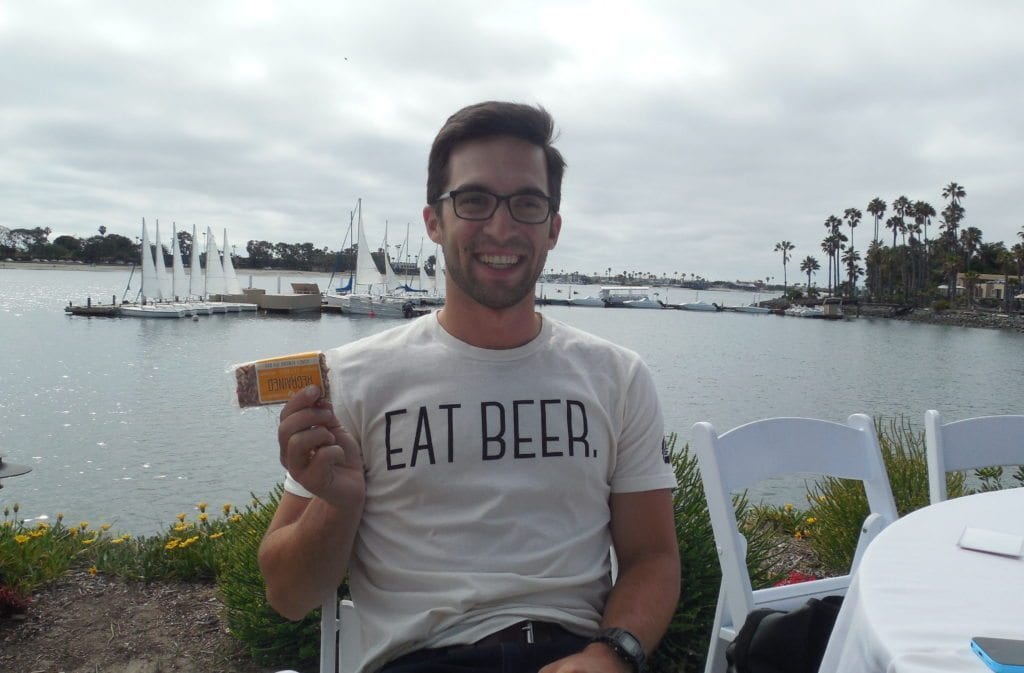With Dan Kurzrock of ReGrained.
“Granola” has become a playful slur for environmentalists over the years. When you say, “He’s pretty granola,” you’re immediately summoning an image of hippie parody – the lanky arms, the tie-dye shirt, the sticky So-Cal accent; it’s the caricatured person a of “going green,” the guy you could easily imagine being chained to a tree somewhere.
But, despite being both a figurative and literal ambassador for “granola,” Dan Kurzrock comes off more like a Shark Tank contestant. He’s a fast-talker, his voice sharply nasal, enunciating everything without much hem & haw – even when he’s pitching his recycled beer cereal bars to hundreds of business leaders.
His argument’s compelling. Craft beer’s rise in popularity has resulted in a wildfire of urban microbreweries, whose waste, as Kurzrock proves, makes for some pretty decent grub. When a brewery is located in a more rural area, he explains, it’s pretty easy to find a place for all of those leftover grains (farms), but with urban breweries the logistics and costs are a bit trickier. Kurzrock encountered this predicament firsthand, and on a smaller scale:
So I was making beer. I started brewing when I was a 19 year-old in college. I loved that I could make beer myself and buy the ingredients. And it tasted good. You know, it was just a great hobby. And then as I got more into the hobby, I started brewing in a certain way. It was called all-grain brewing, which is like a mini-version of what commercial breweries do. At that point I was making five gallons of beer at a time, so not a lot of beer. That’s like a third of a keg. And I would use 15-30lbs of grain, just to make that volume of beer. It was like I was making a cafeteria-sized batch of oatmeal, and I didn’t even have a compost bin. I was a student at UCLA. We had a dumpster. I mean, the stuff smelled good, tasted good. My inspiration was trying to do something with it.
This led to his sustainability-themed business ReGrained. Its tagline, “Eat Beer” is emblazoned on his shirt as I talk to him during one of the breakout sessions at last year’s Sustainable Brands Conference in San Diego. He hands me one of the bars, the Honey Almond IPA, and I take a bite. It’s nutty and sweet. Despite being made from beer waste, it tastes like a regular breakfast granola bar, a good one too.
Obviously, we’re very provocative with our marketing, with the whole beer thing. We want people to pick it up. Hence the giant eat beer logo on the T-Shirts. But we’re making food. We want people to really want to eat it. If someone were to hand that bar to you on a ski lift chair, we’d want you to go, “Wow, what is that?” And then get even more pumped up when you learn what it is.
To learn more about Dan’s sustainable business, visit www.regrained.com










